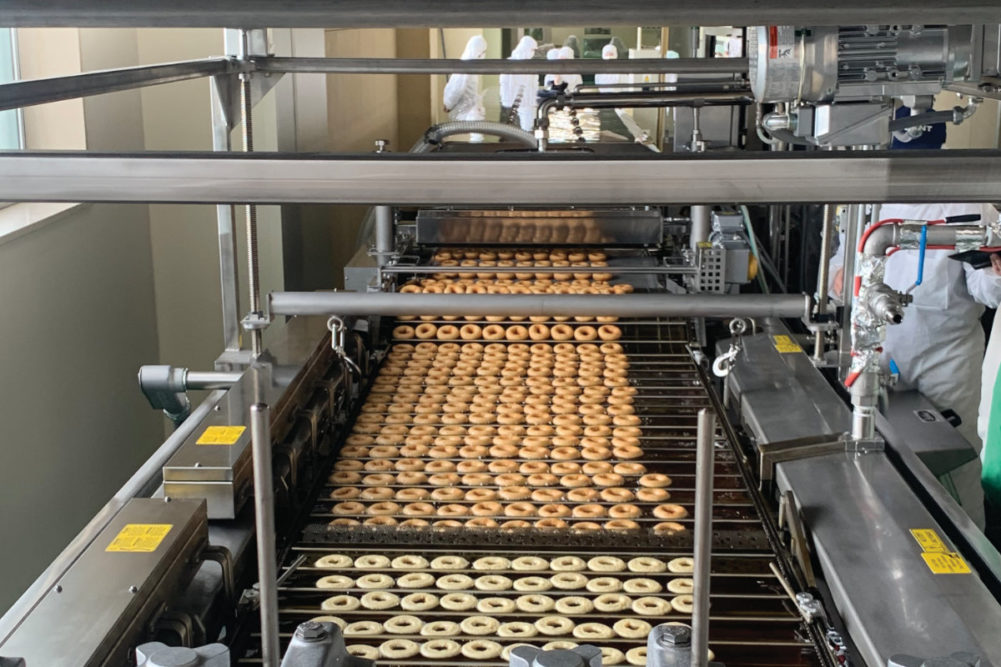In 2020, when many supermarkets had to shut down their instore bakeries, retailers had to depend more than ever on commissaries and other off-site production facilities to supply fresh donuts to the instore bakery.
After nearly a year of struggling donut sales when compared to pre-pandemic times, data released by 210 Analytics in August suggests the category is turning around. The second quarter of 2021 brought in donut sales 30.9% higher than sales in 2020. While July donut sales still trailed pre-pandemic levels by 7.7%, sales dollars for the category outweighed 2020 dollar sales by 21.7%.
As the category turns back to its former glory, and retailers are less pushed to outsource donut production due to constrained labor instore, it’s more important than ever that commissaries and other third-party kitchens pay attention to the needs of their customers, noted Irene Kimmerly, vice president of sales for Auburn, Wash.-based Belshaw Adamatic.
“Donuts are definitely here to stay, and while there’s been a little bit of a call back to ‘let’s produce in-house,’ I think as qualified labor continues to be a real problem, commissaries are going to continue to flourish,” said Kimmerly. “But I think they will have listen to their customers and what those need are, to talk to them about the changing market and what the donuts need to look like and how they can work to sell more.”
Equipment to keep up with trends
Currently, designer donuts are where customers are drawn, and what retailers are going to want to supply, Kimmerly said.
“Anything with fruity pebbles or anything that makes the donut look out of the ordinary is going to be a real eye-catcher,” she said. “We’re also starting to see some breakfast and burger donut offerings that a lot of people are sitting back and watching.”
To be able to keep up with trends as they arise, automation is the number one key production facilities need to consider. Belshaw can help each commissary and third-party kitchen take a look at what the facility’s individual needs are to help determine the best equipment — anything from an automated proofer to fryers, icers, tumblers and coolers — to help make that happen.
Kimmerly noted that commissaries can expect Belshaw to take a look at several different aspects to pinpoint the right equipment:
- First, Belshaw will ask for a donut specification sheet that will go over all of the products the commissary or other third-party facility produces.
- Then, the company will need to know about the various kinds of icings and toppings used in production and how the products are finished and stored.
- After that, Belshaw will discuss the balance between labor and automation needed to yield the number of donuts the commissary needs to produce.
After installation, Belshaw’s commissary customers can expect to stay in touch with the company, and usually with the same salesperson. Kimmerly noted that all of Belshaw’s sales staff has been with the company for over 10 years. She also pointed out that it’s not unusual for a technician to be talking with the commercial kitchen personnel on a regular basis to discuss best ways to implement production processes for new products, as well as helping preventative maintenance to keep equipment running smoothly for years to come.
“We have an excellent technical and customer service support staff,” Kimmerly said. “All of our equipment is installed and trained on by our in-house service technicians. Wherever our equipment goes, our technical support staff goes.”
Keep up with the latest commissary news.

